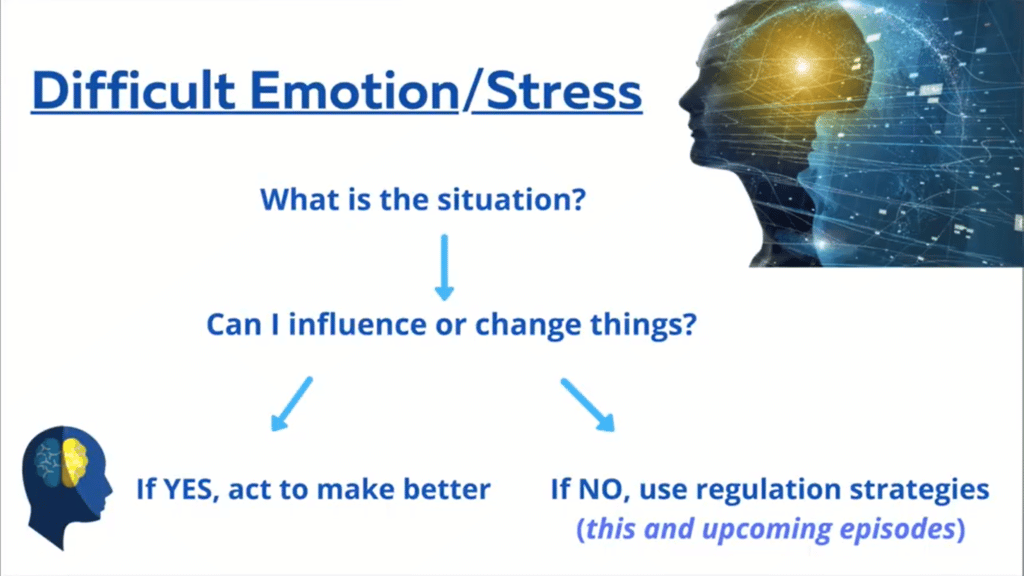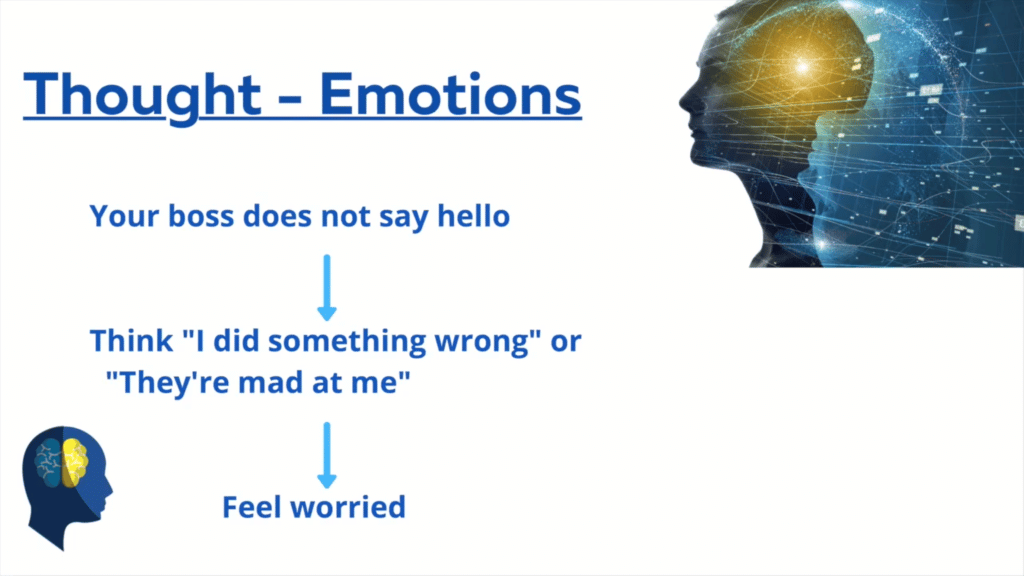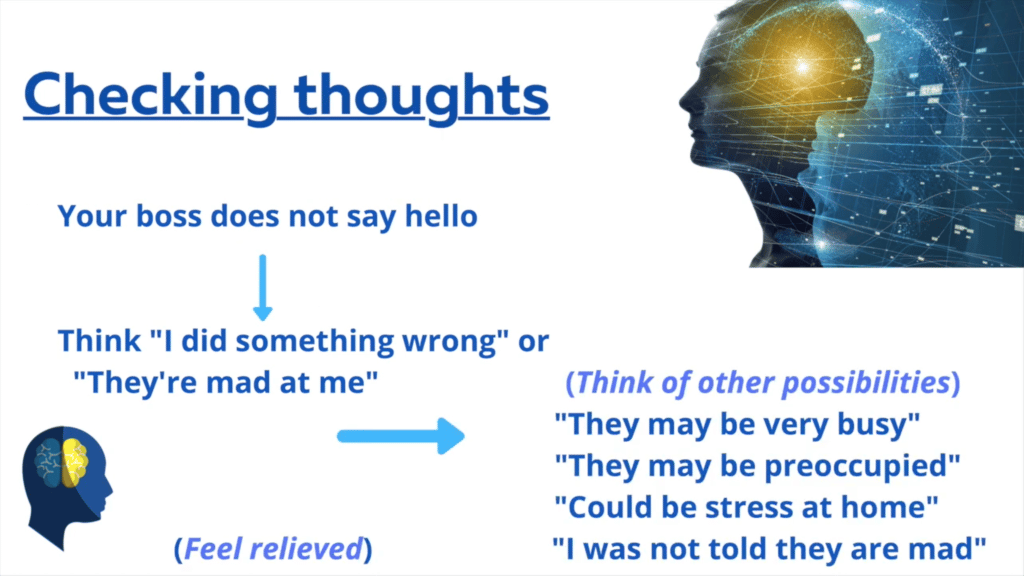How do you talk yourself through moments in which difficult thoughts and emotions come up? This video looks into how you relate to your thoughts (a.k.a. cognitions) and gives some examples. The principle of cognitive self-talk can apply to emotions that arise from tough situations like COVID-19 and other stressors. For more information on how to notice and challenge your thoughts, I recommend this helpful book (it’s a classic!) or this good resource with a workbook.
Welcome back, this is Dr. Matt B with your Emotional Minutes. Today we’re talking about how you might regulate emotions in response to situations you can’t control using a strategy called cognitive self-talk. This is meant to give you some information and knowledge about some of these emotional processes.
Can You Control The Situation?
Last time we talked about the question of whether or not you can control the situation that you’re in. Often times, in stressful situations where you have some control, it is helpful to do something to change the situation.
This time we’re going to talk about things you can do if you cannot influence the situation you’re in. There are a couple different ways you can do this.

Cognitive Self-Talk: Changing How You Think
One strategy is what they call cognitive self-talk, which is just a fancy word to say checking in with your thinking. If you checking in to how you are thinking about the situation, you might think about the situation in a different way. You can also do this by asking yourself if the way you’re thinking about that situation is accurate.
Oftentimes we have situations where we think the worst is going to happen, but then it doesn’t happen. A lot of times, we can ask ourselves in the moment if we are thinking the worst is going to happen and if is that really the case. You can stop, sit, and check in with yourself for a second.
Examples
For example, you see your boss in the hall at work and they don’t say hello to you as they pass by. There could be a whole number of thoughts running through your head, but people often jump to a negative explanation. They might think that they did something wrong, or their boss is mad at them. Of course, having those perfectly natural thoughts might lead you to feel worried. But that thought might not always the case.

We’re not always correct as humans. We are not perfect, so we don’t always get everything right. We might be convinced of something that’s not happening. In situations like these, you can check in with your thoughts and give yourself a chance to consider other possibilities. These are things you can think of explicitly.
To continue with the example, your boss may be very busy or preoccupied. They may have a lot going on at work and they were thinking about something else as they pass by. You could also start to think of things or evaluate the evidence in the situation. Thoughts such as “I was never told that they are mad at me” or “I was never told that I did something wrong at work or anything like that” can change how you see the situation.

Effects of Cognitive Self-Talk
Usually, what this leads to is feeling less of the emotion you were experiencing and getting some relief. Sometimes this takes removing yourself from the situation, but it can be an effective way to help yourself really talk yourself through that moment.
In the next couple episodes, we’ll go over other strategies like emotional acceptance and seeking social support from other individuals. Research has shown that these strategies are effective as well.



